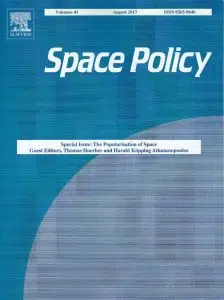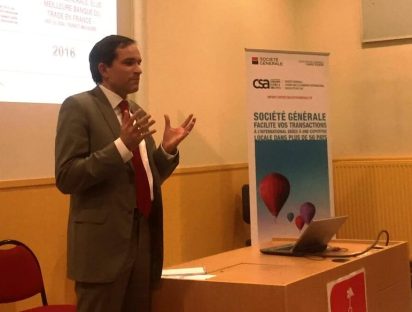 Space remains intriguing, mysterious and utterly fascinating to a large amount of people. Take the Twitter account of the French astronaut, Thomas Pesquet, which has 779,000 followers, or his Facebook account with over 1.5 million fans. The Facebook page run by the European Space Agency flags 2,000 videos and has accumulated a total of 856,000 ‘likes’.
Space remains intriguing, mysterious and utterly fascinating to a large amount of people. Take the Twitter account of the French astronaut, Thomas Pesquet, which has 779,000 followers, or his Facebook account with over 1.5 million fans. The Facebook page run by the European Space Agency flags 2,000 videos and has accumulated a total of 856,000 ‘likes’.
This remarkably high level of fascination for real-life space activities is exponentially multiplied when coupled to the attractiveness and appeal of popular culture, in which space-related topics traditionally play an important role. The 2013 video in which the British astronaut Chris Hadfield revived David Bowie’s 1969 legendary pop song ‘Space Oddity’ during his stay at the ISS has been viewed an almost unbelievable 38.6 million times on YouTube.
It is this phenomenon of the popularisation of space that is at the heart of the special issue of the renowned international journal Space Policy (Elsevier) edited by Thomas Hoerber and Harald Koepping Athanasopoulos. In thirteen original contributions, they address the engagement of the wider public with space exploration that represents an important enabler of space-related activities. The collection of papers also sheds light on the transnational character of pop culture, happily transcending national borders and establishing a sub-cultural public sphere of exchange and communication.
The editors deserve particular praise for involving, alongside established scholars in the field, two graduate students, Marine Alalinarde and Léa Gringé, with quality papers on the impact of Star Strek on public perception and the dialogue between science fiction and the space sector.
As Kai-Uwe Schrogl from the European Space Agency points out in his conclusion, the popularisation of space is important if one is ‘convinced of the positive effects space utilisation has on society and the benefits which are derived from space for economics, sustainability, progress and prosperity’. (p. 70). A conviction that is shared by the editors and authors of this special issue, and a contagious one with that.
Space Policy, Volume 41, August 2017.
Contributors: Thomas Hoerber, Harald Koepping Athanasopoulos, Iraklis Oikonomou, Nathalie Kerstens, Christiana Giannopapa, Sharon Dolmans, Isabelle Reymen, Lorna Ryan, Andrew Thomas, Marine Alalinarde, Léa Gringé, Antonella Forganni, Sarah Liebermann, Alfredo Roman, Michael Sheehan, Kai-Uwe Schrogl.
Space Policy is an international, interdisciplinary journal which draws on the fields of international relations, economics, history, aerospace studies, security studies, development studies, political science and ethics to provide discussion and analysis of space activities in their political, economic, industrial, legal, cultural and social contexts.
Featured photo: Canadian astronaut Chris Hadfield plays the guitar during his mission to the International Space Station in 2013. Hadfield recorded a cover of David Bowie’s hit, “Space Oddity”, and the video went viral. © NASA/CSA via ESA Multimedia




